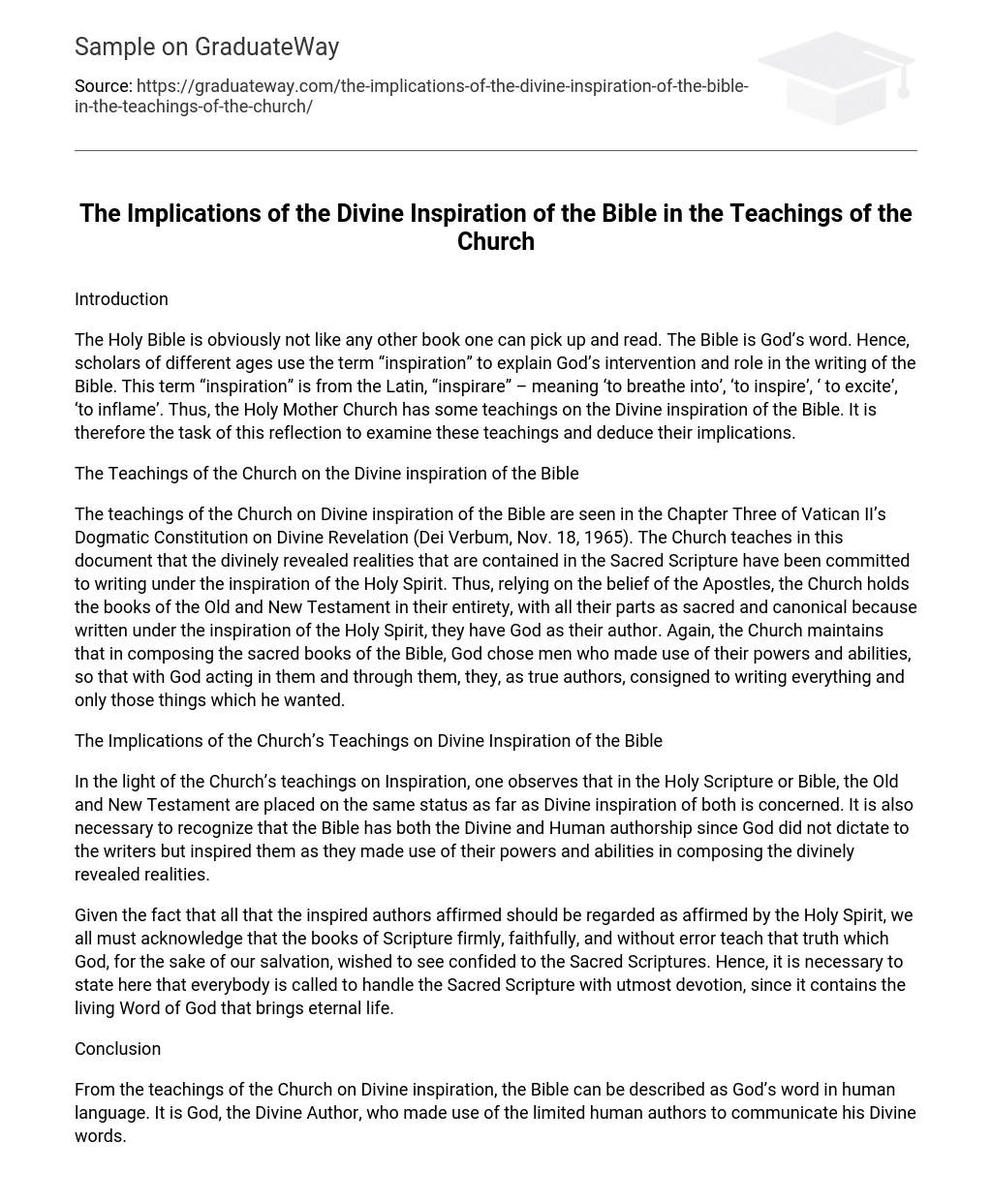Introduction
The Holy Bible is obviously not like any other book one can pick up and read. The Bible is God’s word. Hence, scholars of different ages use the term “inspiration” to explain God’s intervention and role in the writing of the Bible. This term “inspiration” is from the Latin, “inspirare” – meaning ‘to breathe into’, ‘to inspire’, ‘ to excite’, ‘to inflame’. Thus, the Holy Mother Church has some teachings on the Divine inspiration of the Bible. It is therefore the task of this reflection to examine these teachings and deduce their implications.
The Teachings of the Church on the Divine inspiration of the Bible
The teachings of the Church on Divine inspiration of the Bible are seen in the Chapter Three of Vatican II’s Dogmatic Constitution on Divine Revelation (Dei Verbum, Nov. 18, 1965). The Church teaches in this document that the divinely revealed realities that are contained in the Sacred Scripture have been committed to writing under the inspiration of the Holy Spirit. Thus, relying on the belief of the Apostles, the Church holds the books of the Old and New Testament in their entirety, with all their parts as sacred and canonical because written under the inspiration of the Holy Spirit, they have God as their author. Again, the Church maintains that in composing the sacred books of the Bible, God chose men who made use of their powers and abilities, so that with God acting in them and through them, they, as true authors, consigned to writing everything and only those things which he wanted.
The Implications of the Church’s Teachings on Divine Inspiration of the Bible
In the light of the Church’s teachings on Inspiration, one observes that in the Holy Scripture or Bible, the Old and New Testament are placed on the same status as far as Divine inspiration of both is concerned. It is also necessary to recognize that the Bible has both the Divine and Human authorship since God did not dictate to the writers but inspired them as they made use of their powers and abilities in composing the divinely revealed realities.
Given the fact that all that the inspired authors affirmed should be regarded as affirmed by the Holy Spirit, we all must acknowledge that the books of Scripture firmly, faithfully, and without error teach that truth which God, for the sake of our salvation, wished to see confided to the Sacred Scriptures. Hence, it is necessary to state here that everybody is called to handle the Sacred Scripture with utmost devotion, since it contains the living Word of God that brings eternal life.
Conclusion
From the teachings of the Church on Divine inspiration, the Bible can be described as God’s word in human language. It is God, the Divine Author, who made use of the limited human authors to communicate his Divine words.





